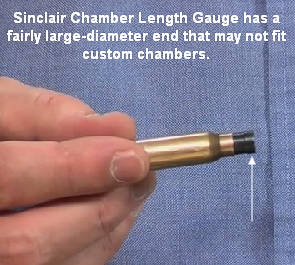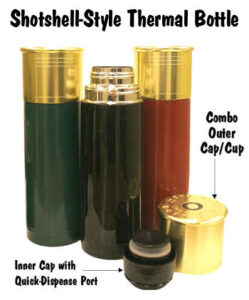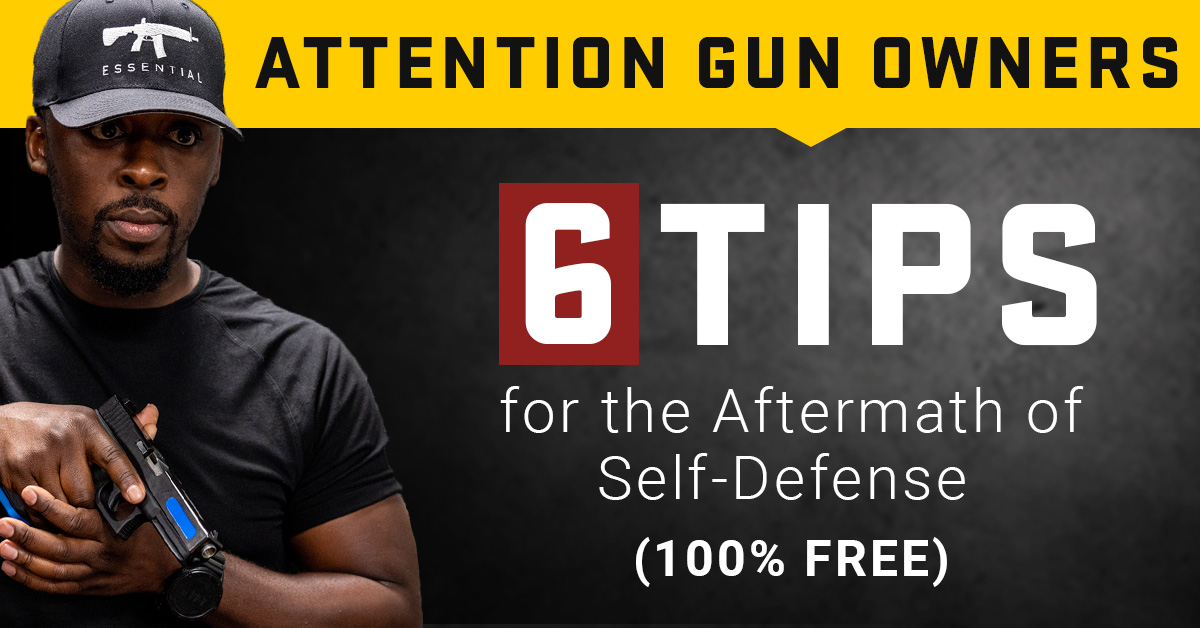Here is a handy DIY tool that we learned from Frank Shuster. He was a Forum member who sadly passed away in 2015. Frank was an extremely knowledgeable shooter and was always willing to assist others. Here’s one of Frank’s clever inventions. He invented a way to determine the length of a rifle chamber by measuring a fired cartridge. Frank’s system involves cutting a “collar”, or part of the neck, from the case. This collar is then slipped over a bullet in a case without primer or powder. As you chamber the dummy, the collar will move forward to indicate the length of the chamber. (Ensure the bullet is well off the lands to allow the dummy round to chamber fully.
The gauge shown can be made at home (for free) using components you already own. Frank explained: “I cut the front half off the case neck using a Dremel cutting wheel. The rough edges can be de-burred with a jewelers needle file. You do not need to have a perfectly square cut-off surface, as you will be using the original straight mouth of the chamber to make contact. Seat any old bullets to the normal seating length. Then, apply a small drop of oil to the ogive and slide the collar over the bullet. Close the bolt and chamber the dummy round. “Extract the round slowly, carefully and measure with calipers”
Frank’s DIY gauge for chamber length works well. Frank said in a Shooters’ Forum thread: “I’ve done a comparison of the length measurements using this method and the chamber length shown on the chambering reamer drawing, and the Sinclair Gauge, and they’re all within.001”.”
Commercial Chamber Length Gauges may not work with Custom Chambers
Frank used Sinclair chamber-length Gauges for some applications. These bullet-shaped gauges slide into a cartridge but “it’s not convenient to order just that little gauge… without spending $6 on a $7 item.” Furthermore, the Sinclair gauges might not fit a chamber with a smaller neck dimension because the diameter at the end of the gauge is too large.
The homemade gauge with a collar will work in a custom chamber as an alternative to commercial gauges. The homemade gauge will work with smaller-than-standard chamber neck dimensions, as long as you use a piece of appropriately-turned fired brass that fits your chamber.

















